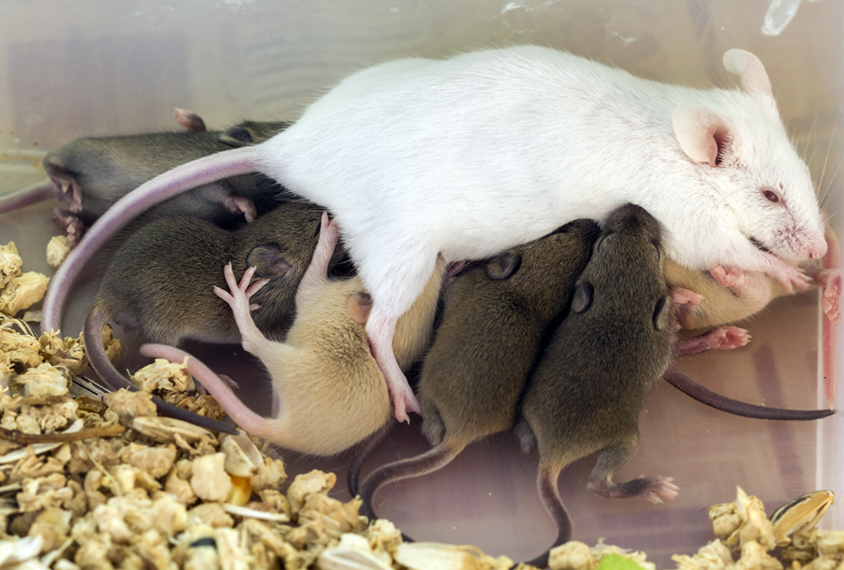Mark Zylka
Associate Professor
University of North Carolina at Chapel Hill
From this contributor
Few autism researchers control for the ‘litter effect’ — this needs to change
Anyone who uses multiple animals from a small number of litters to increase sample size is making a serious mistake. The similarities within individual litters will heavily skew the results.

Few autism researchers control for the ‘litter effect’ — this needs to change
Length matters: Disease implications for long genes
A gene’s length may influence its expression, and this has implications for autism, which tends to be linked to particularly long genes, says Mark Zylka.

Length matters: Disease implications for long genes
Explore more from The Transmitter
Neuro’s ark: Spying on the secret sensory world of ticks
Carola Städele, a self-proclaimed “tick magnet,” studies the arachnids’ sensory neurobiology—in other words, how these tiny parasites zero in on their next meal.

Neuro’s ark: Spying on the secret sensory world of ticks
Carola Städele, a self-proclaimed “tick magnet,” studies the arachnids’ sensory neurobiology—in other words, how these tiny parasites zero in on their next meal.
Autism in old age, and more
Here is a roundup of autism-related news and research spotted around the web for the week of 2 March.

Autism in old age, and more
Here is a roundup of autism-related news and research spotted around the web for the week of 2 March.
Lack of reviewers threatens robustness of neuroscience literature
Simple math suggests that small groups of scientists can significantly bias peer review.

Lack of reviewers threatens robustness of neuroscience literature
Simple math suggests that small groups of scientists can significantly bias peer review.